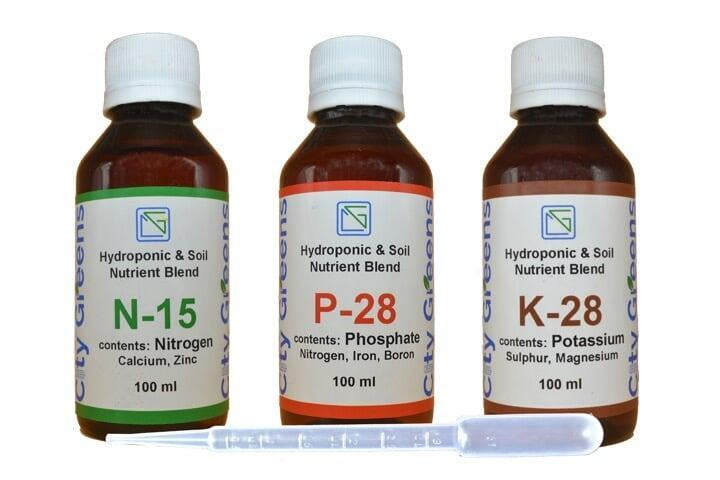Major Nutrients
Carbon, Hydrogen, and Oxygen are the basic constituents of life. This is true for humans and true for plants. Without these three, plants cannot survive. Plants can absorb these from the air and water, and there is, in general, no need to provide these nutrients externally to the plants. (in specific cases / commercial application some of these nutrients are added externally, especially Carbon in the form of Carbon-di-Oxide in enclosed farms/greenhouses).
Macro Nutrients
These are the nutrients that the plants need in large quantities for efficient functioning and growth. The macronutrients required by plants are Nitrogen (N), Phosphorus (P), Potassium (K), Calcium (Ca), Sulphur (S) and Magnesium (Mg).
Micro Nutrients
Micronutrients or trace elements are the nutrients that plants need in very small quantities. These are necessary for efficient metabolism and good health. These include Iron (Fe), Zinc (Zn), Copper (Cu), Manganese (Mn), Boron (B), Molybdenum (Mo), Chlorine (Cl) and Nickel (Ni).
How much of these nutrients do the plants need?
To understand the nutrition process in a plant’s life-cycle, consider the analogy of humans. A human embryo grows safely inside her mother’s womb and takes the needed nutrition from her mother. There is no need of giving any external nutrition yet. Once the baby is born, she needs external nutrition. Further, the nutritional requirements change with age and also with the life stage of the human.
Plant nutrients - FAQs
How do plants get these nutrients?
Plants draw these nutrients from the growing medium, which is the soil in a majority of the cases. Soil, as such, does not have any nutrients of its own. It, however, acts as a storehouse of nutrients that gets added to it naturally through the atmosphere, weathering of rocks, bacterial conversion, decomposed animal waste etc. or artificially by adding fertilizer, manure, and compost etc.
Can you grow plants without adding any nutrients?
Yes, you can, if you are growing in fertile soil which may have some stored nutrients. But, once the stored nutrients run out, the plant will begin to grow weak, will be unable to withstand pests, and yield will decrease or become non-existent (plant will focus all its energy on surviving and not on growing as humans will do in case of famine). Thus whether one is growing in soil or outside soil, external nutrition must be provided to plants to ensure a healthy garden/farm. More so, in case of growing in a soil-less medium like Cocopeat, hydrotons, rice husk or water.
From where to get these nutrients?
For adding these nutrients externally, one can either depend upon Organic sources like bacteria, earthworms, fish excreta, vermicompost, manure etc. or on inorganic ones like fertilizers and precision blends. Again, taking the analogy of humans, one can either provide nutrition through organic means like milk, rice, etc or through inorganic supplements like baby food, Farex, Cerelac, Horlicks, Bournvita etc. or take the best of both worlds, adding a spoon of Horlicks to that milk. Which one to use? It is more a matter of individual preference; some prefer only organic; some prefer precisely measured scientific blends depending upon specific plant needs; some prefer using a mix of both. All of these should work with the plants.
Happy Growing!
